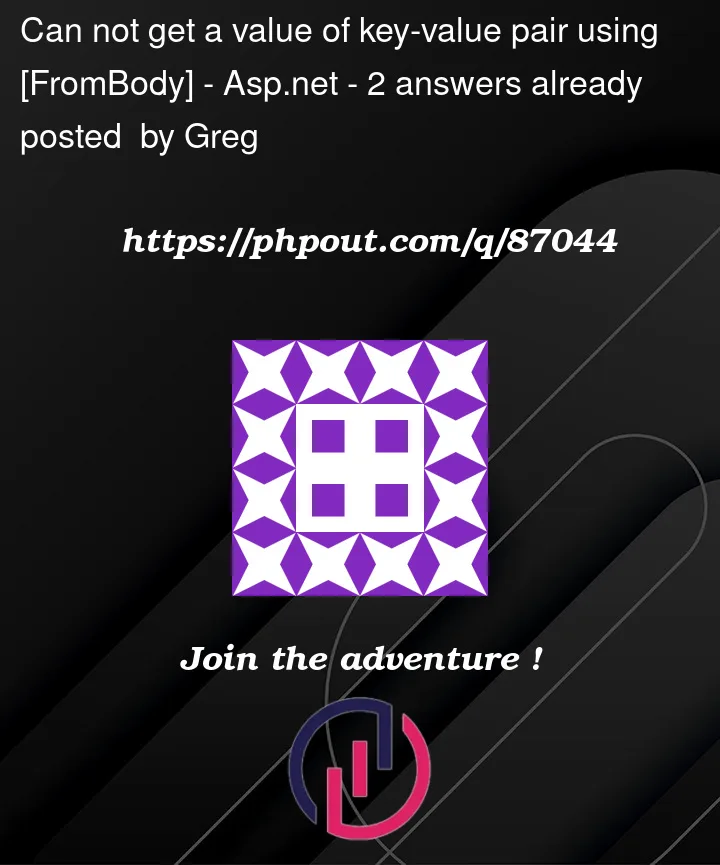Data is sent from front-end to back-end. Request body is created like this
var stateWithValue = {};
for (const item in self.pricings()) {
state[item] = self.pricings()[item]["Comment"];
}
var request = {
generalComment: self.generalComment(),
stateWithValue: stateWithValue
};
Request body looks like this
{
generalComment: "test comment",
stateWithValue:
{
Delaware: "Value1",
California: "Value2",
Texas: "Value3"
}
}
Number of elements in stateWithValue can be different for every request.
In the back-end, data is taken using [FromBody] attribute
public WebApiResponseGeneric<EmptyResponse> State([FromBody] StateRequest request)
StateRequest.cs
public class StateRequest : PublicRequest
{
public string GlobalComment { get; set; }
public StateWithValue StateWithValue { get; set; }
}
public class StateWithValue
{
public string State { get; set; }
public string Value { get; set; }
}
In network tab(dev console) payload looks like this
generalComment: test general comment
stateWithValue[Delaware]: Value1
stateWithValue[California]: Value2
stateWithValue[Texas]: Value3
The Problem
In back-end request object, StateWithValue.State StateWithValue.Value are both null.




2
Answers
YOu have to post PublicRequest class too. But for your request body json, your class should be
or change
and javascript
In order to map the JSON:
You would need to use the following C# model
If you want to map multiple states then consider using an array instead, something like:
But your model would need to be updated to look something like this:
Note: There is a typo with general vs Global in your sample code